Executive roundtable
contents
-
- Two new Outside Directors, changes in the Board and roles of Outside Directors
- Management’s consciousness of capital efficiency and dialogue with the capital markets
- Sustainability at the JT Group
- The tobacco business as one team and initiatives to build corporate value
- Communication with individual shareholders
- Toward stronger governance
-
Hiroko Yamashina
Independent Outside Director
-
Masato Kitera
Independent Outside Director
-
Mutsuo Iwai
Chairperson of the Board
-
Yukiko Nagashima
Independent Outside Director
-
Tetsuya Shoji
Independent Outside Director
-
Kenji Asakura
Independent Outside Director
Two new Outside Directors, changes in the Board and roles of Outside Directors
Iwai
-
The JT Corporate Governance Policy requires that Independent Outside Directors make up at least a third of the Board of Directors. What’s important is not just maintaining this number, but rather energizing Board discussions by incorporating a range of opinions. In recent years, JT has been adding Outside Directors with more varied backgrounds and experience, and evolving more effective governance.
Because we just instituted the new system in March, I’d like to focus on what we can expect from it rather than specific changes already in play. Ms. Yamashina, I hope to see you bringing your rich experience in the financial industry to bear in providing a broad viewpoint and further enlivening the Board from the perspective of diversity. Mr. Asakura, I look forward to your input from deep experience in global business to help JT address the many challenges we face with advancing globalization and geopolitical risks. I know you have actively undertaken initiatives to reform corporate culture in the past, and I hope that your firsthand experience with floor operations will help highlight issues within the JT culture.
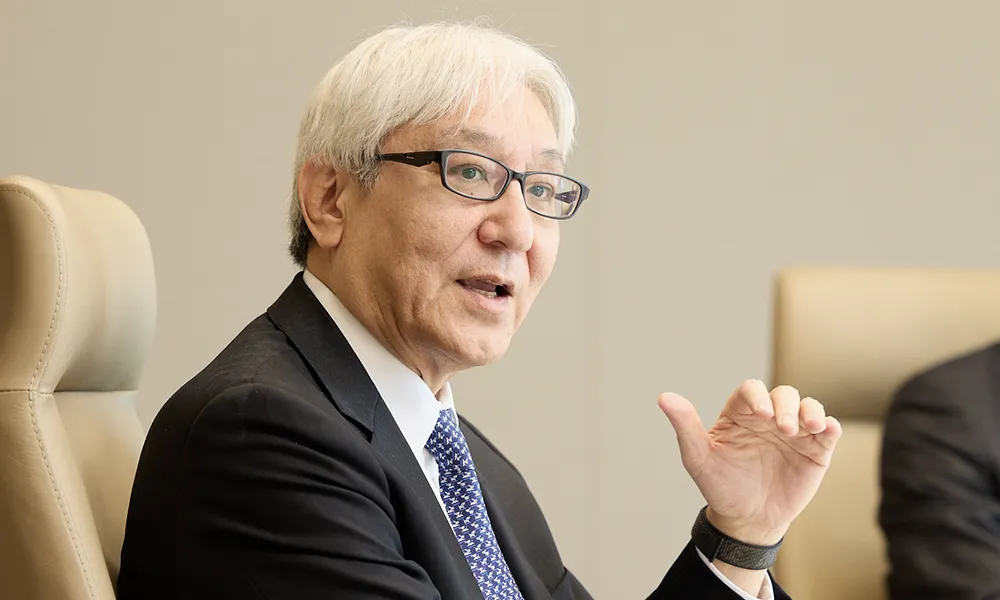
Yamashina
-
I’ve been observing JT management as an Outside Audit & Supervisory Board Member since last year. My background is 38 years in the financial sector. JT, by contrast, is a manufacturer operating globally in over 130 countries. Its approach to risk is different from that of the financial sector, and it recoups investment in different time frames. At first, it was full of surprises for me, but by studying its history, I’ve been gaining a deeper understanding of JT. I hope to contribute an objective standpoint to JT’s direction, with my past experience and future trends in mind.
Asakura
-
I took office only a month ago, so I’m still largely in the dark. My priority theme is to gain an understanding of the differences between JT’s B-to-C businesses and the B-to-B business I’m from, and make best use of that understanding in helping oversee the management of JT. In the global aspects of my business, I see similarities with JT’s global operations. I understand how hard you all are working to manage businesses as they build scale while maintaining overall governance across the Group. Through the Board, I hope to contribute in those areas.
Nagashima
-
I’d like to add something to that mention of diversity. As a woman, I understand I participate in the Board of Directors as a visitor to JT’s “home turf.” In offering value to society through services and corporate activities, we think essentially of individuals, and the “diversity” concept comes up when we focus on their differences. I prefer to think that the ideal is a process in which we perform at our best without being conscious of our individual differences, making our realization of the good that comes from difference an afterthought. What should diversity be as a precondition for achieving our ideal? As we welcome two new members from different backgrounds, I feel it’s time for a fresh discussion.
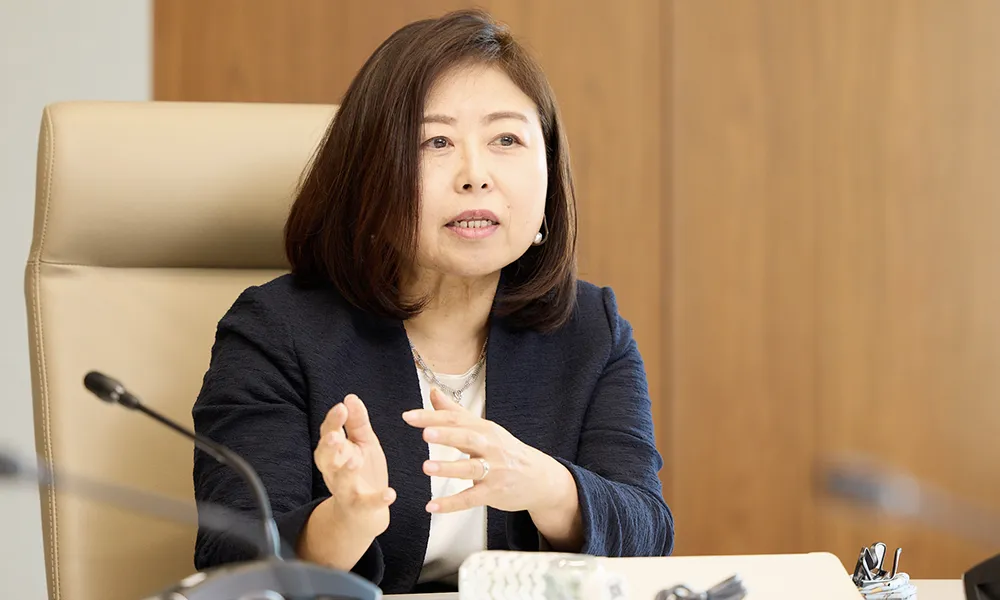
Shoji
-
This year, we’ve moved from four Outside Directors to five. The rich experience in different fields of our two new members gives us a great new formation, I think. The Board is always ready for open, fair discussion on fulfilling our Purpose, including and making the most of the different experiences and decision criteria that each member brings to the table.
Kitera
-
As Mr. Shoji said, the JT Board is upbeat, which I think is helping us conduct open, goal-oriented discussions.
From the standpoint of the international situation and the context of our businesses, I understand that the environment for Japan and Japanese companies is tougher than ever. JT is one of many Japanese firms facing the challenge of change without hesitation, working hard to adapt. I’d like to help achieve a distinctive JT way of sustainability, with the Purpose as our foundation.
Management’s consciousness of capital efficiency and dialogue with the capital markets
Iwai
-
When Japanese companies consider scenarios for global success, capital efficiency, like price-book ratio, is gaining importance. Traditionally, corporations have placed primary importance on maintaining high domestic sales and share of the domestic market, because Japan is a country of high domestic demand. As the Japanese population declines and falling domestic demand is projected, it’s more necessary for management to be conscious of capital efficiency. The capital market demands that corporate managers respond to this change.
In managing its businesses, JT has been conscious of return on equity. As emphasis shifts from combustibles to RRP (Reduced-Risk Products) in the tobacco business, investment in combustibles will be more priority-focused and disciplined to maximize return and build efficiency. Cash obtained from that investment will become source funding for secure investment in RRP, a next-generation product category. I’d like to see the Board clearly define a resource distribution policy like this and monitor progress on our journey to higher corporate value.
Lately, dialogue with investors is more important than ever, and on such occasions, we should not just passively listen to investors, but also remain watchful for any misunderstanding they may hold, and publicize and clearly explain our position as a corporation. They may disagree and assert that society works in a certain way, but we can understand each other better. The IR divisions and executive officers in charge compile what we discuss with investors and their opinions, and provide those reports to the Board every quarter for discussion. By maintaining a positive loop for self-improvement and evolution, I believe we can measure up to the expectations of the market and investors.
Shoji
-
As Outside Directors, we also participate in corporate communication with the capital markets, mainly through investors, and we are considering enhancing and developing this practice further. On such occasions, we gain the same understanding of market expectations and requests as the other directors. The market assesses corporations like JT using a rating system and multiple objective indices. To improve our standing, dialogues with capital market participants are good opportunities to exchange opinions and information, and we should continue doing them proactively.
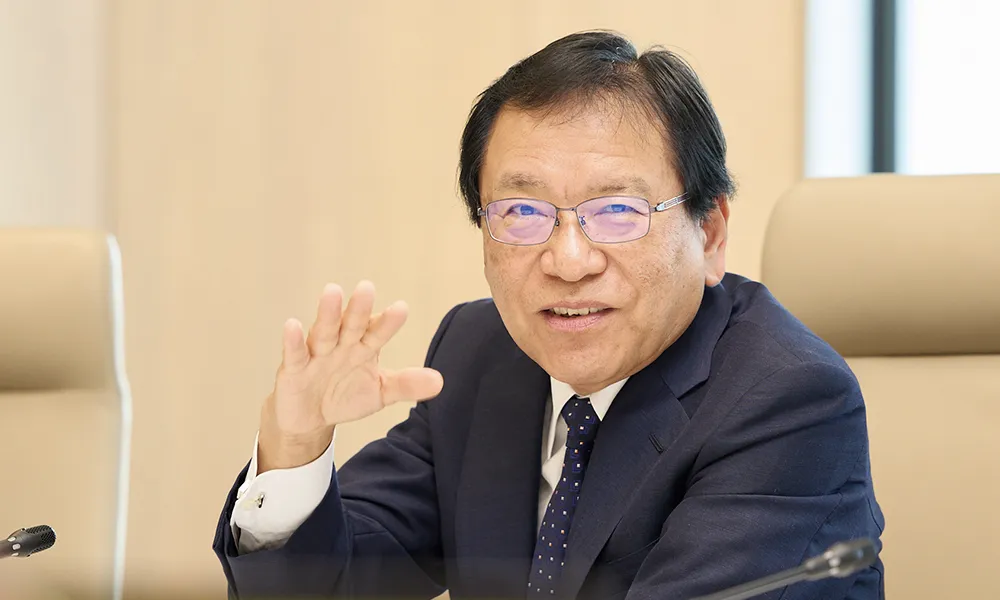
Nagashima
-
Last year, I talked with ESG-focused investors. It was very rewarding because I was able to learn from their relatively long views. They asked me two questions I’d like to share. First, how quickly do we Outside Directors, who are outside the management of regular business, receive negative information about the Company. JT shares information with us by email, even about relatively minor issues, in a timely manner. It’s very important to get the bad news first, and I told the investors JT communications are ideal in terms of frequency and content.
The second question was whether the Board customarily accept things as expected. I told them otherwise, because the JT Board makes a clear distinction between agenda items for in-depth discussion and those for information sharing only. This is because, based on the bad-news-first principle, information reaches us without waiting for Board meetings, and the priority on items for Board discussion is clear. This discussion with investors made me aware of how important it is for us outsiders to provide fact-based assurances that JT follows through on its Board policies.
Sustainability at the JT Group
Yamashina
-
At this historic turning point, corporations are facing the need to pursue social significance as well as economic value, and have to respond to the way social value changes over time.
Last year, I had an opportunity for direct contact with people working on the floor, as an Outside Audit & Supervisory Board Member. I found the managers on-site highly aware of the Purpose and sustainability, and while their subordinates did not always share the same level of understanding, they knew that reform was needed, and were working to slowly but steadily reinforce them. Watching them leading discussions about progress and challenges and carrying initiatives forward from a range of standpoints, I felt the energy on the floor, and powerful first steps have already been taken toward a promising future.
Nagashima
-
Last year, I also had an opportunity for real floor experience. In Milan, Italy, visiting a manager in charge of RRP marketing strategy, I witnessed people and the organization drawing simultaneous growth opportunities from an exchange of knowledge. I heard that the manager I met was assigned to a new marketing job in the US the following month, and he planned to apply his success in Italy in a challenging experiment there. This is an example of training global personnel, and of those people contributing to the growth of the organization. The importance of people really came home to me.
Iwai
-
A company’s value grows only when its employees are active. I’ve been thinking people are the most important thing, and have been working to evolve the Company’s human resources systems to reinforce corporate value. When diverse people agree with the Purpose and principles of the JT Group and contribute their share, the Company grows, paying the employees and supporting their personal growth in return. This kind of mutual relationship is necessary to success, I think.
The JT Group is reviewing its sustainability strategy, including ideas about human capital. Corporate growth and sustainability don’t always go together. In our effort to continue working to make the planet and society more sustainable, however, I think our values are delivered through our diverse people, businesses and products, which helps the Company grow. In that sense, the sustainability targets we announced this year should be closely related to our daily business, along with environmental and social issues. That’s why we’ve included items directly related to our businesses as much as possible. For instance, to reliably procure the tobacco leaf that’s essential to our tobacco business over the long term, we set various targets for human rights, greenhouse gas emissions and biodiversity. We spent plenty of time on the process of setting these targets, discussing them repeatedly in Board meetings and on other occasions. The results, I think, show a perfect match between the JT Group’s priorities and social needs.
Asakura
-
Growth, in terms of both economic and social value, is an important theme for corporations in general. The subject causes robust discussion in JT Board meetings that I find I can hardly wait to participate in. I am very interested in understanding the awareness of sustainability among the floor personnel who are working hard to maintain our businesses, in terms of incorporating sustainability targets in their daily tasks. On the floor, debate can happen naturally, and that’s a healthy thing; through continuing debate, the sustainability targets truly take root. I want to see that happen.
The tobacco business as one team and initiatives to build corporate value
Kitera
-
Our recent move to unify tobacco business operations into one team is a very ambitious initiative, and a reform necessary for the JT Group to achieve the top position in the global market. Now, the domestic and global tobacco markets are managed centrally by JTI in Geneva, and we Outside Directors visited in October 2023 to talk with the executives there. Two things impressed me most. First, extremely heated discussion following the analyses of the various markets—they were so hot I felt I might get burned just sitting there! That kind of passion is necessary, I think, as we continue pushing to expand our share of the tobacco market by centimeters or even millimeters.
JT’s research and development operation has also converged as one team. I’m told this is an initiative to unify our R&D functions worldwide for better efficiency and focus on its intended purposes. I have high hopes for this move, seeing the potential for new tobacco product forms offering greater pleasure that are different from HTP (heated tobacco products), where the market is growing.
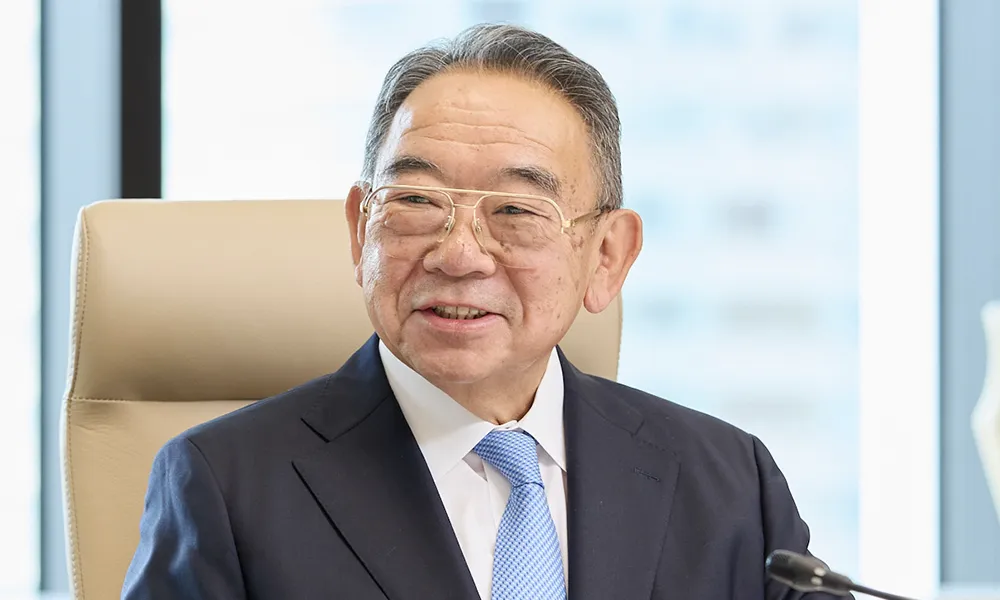
Yamashina
-
Last year, I had the pleasure of visiting a business site in Manila, in the Philippines, a major JT Group base in Asia. It has a sales office, plant and business center where people of various nationalities and experience work. I marveled at the perfectly balanced combination of global management and localization. I listened to young, energetic people who saw competition as the essence of business and were facing it with determination. As a single team, exchange of international personnel has begun, and we will start seeing something similar in Japan, promising the growth of an energetic, aggressive culture for global competition.
Iwai
-
We’ve finished reviewing internal systems and structures to support the new one-team operations, but to build corporate value in the future, I think new approaches are necessary in our tobacco, pharmaceutical and processed food businesses, rather than just extending ongoing initiatives. In the tobacco business, we will put effort into development of a new generation of tobacco products in parallel with our development of HTP. In the pharmaceutical business, we need to explore new fields in addition to enhancing existing business. The application of new technology, such as using AI in drug discovery, is a case in point. In the processed food business, we will develop products of high added value to meet social trends like aging and health consciousness and overcome the challenge of existing products becoming ordinary commodities and reducing profit potential. D-LAB is undertaking research and development for the Group on the theme of fulfilling moments, with future business in mind, and gathering information through venture investments and the like. It has already developed and commercialized several products, though on a small scale.
Communication with individual shareholders
Kitera
-
I hear many enthusiastic comments from individual shareholders in the Ordinary General Meeting of Shareholders. As of December 31, 2023, 27.53% of JT shareholders are individuals, far above the average among Japanese firms. I imagine this has much to do with the JT policy of paying high dividends. JT values individual shareholders, and we communicate closely with them through newsletters and briefings. I feel that this sort of effort to reach out to them should continue for even better communications.
Iwai
-
Increasing individual shareholders means greater diversity, so I will continue searching for the best ways to communicate with them. To return to shareholders, including individuals, we focus on high dividends backed by strong business results rather than shareholder perks and gifts to take home after meetings.
Asakura
-
Speaking from personal experience, nothing is more important than good communication with shareholders in terms of dialogue with the capital markets. JT’s high-dividend policy must be very attractive to shareholders, so we should continue to hold this policy. I think that maintaining open communication is also important with both individual and institutional investors, and we should continue pushing there as well.
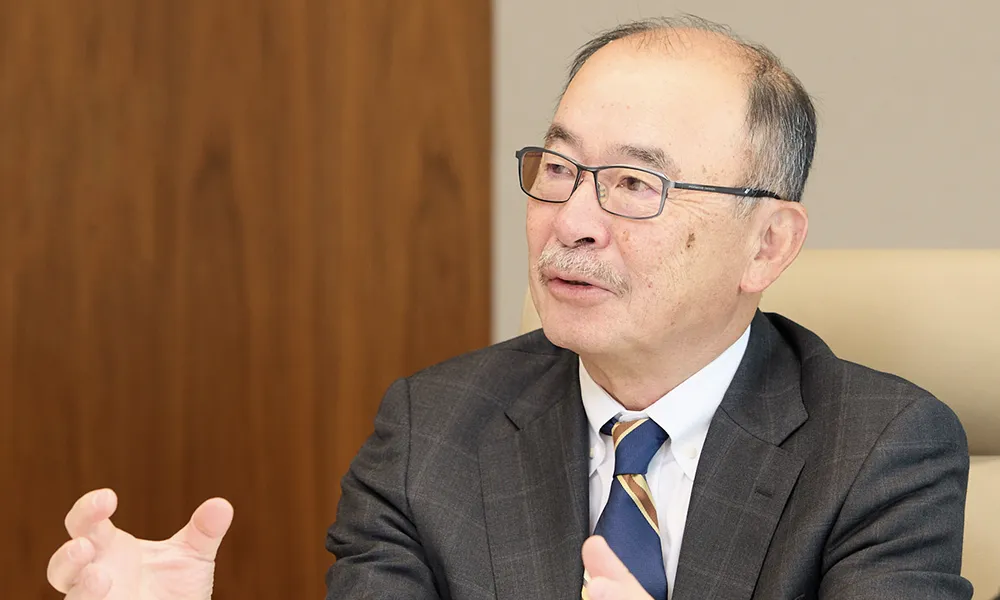
Toward stronger governance
Iwai
-
Based on the recent assessment of Board effectiveness and challenges identified in 2022, in 2023, we worked to further strengthen the governance functions of the Board as well as increase the efficiency of its management. To ensure there’s enough time for discussion, we gather detailed reference materials covering the agenda items ahead of Board meetings, and provide explanatory answers to the questions we’re asked. After that, the Board discusses any matters of concern expressed by the members, and makes its final decisions. As the Chair, I pay special attention to the balance between explanation and discussion.
Shoji
-
We have been working to resolve the fiscal 2022 issues. For one-team operations, we’ve established a consistent mindset and shared passion. From the management standpoint, however, I feel that there is a gap in the information-sharing approaches of JT and JTI and we are still in the exploratory phase. The two use different measurement indices based on different perspectives, which is positive in a way, but I think there remains a lot of room for us to reach a unified policy on top-priority information management and sharing for realizing the Purpose.
Kitera
-
The effectiveness of the Board boils down to how open we can be in discussions, and that’s substantially influenced by the atmosphere and culture of the Company. For that, it’s important for JT to maintain its vibrant, energetic atmosphere. I’m personally working to make that happen, believing that the current vibrant atmosphere leads to effective Board operations.
Nagashima
-
Those who operate businesses are constantly facing various serious issues in a global environment, so they always need the latest information to take effective action. We Outside Directors oversee this, providing advice from our respective backgrounds. Our skill matrix is based on past experience, and I think we have to update ourselves along with the changing environment and evolutionary trends.
Yamashina
-
In JT workplaces, I think diversity of thinking is needed as well as that of personal aspects. In other words, it’s important that people of different backgrounds, experience and values bring their diverse ideas together to create new value, and provide society and our customers with new products and services while building corporate value. That’s why diversity and its goals should always be on the Board’s agenda. JT puts priority on the diversity of its decision-makers and ideas, and considering and training women for management is part of that effort. As the Company creates opportunities for us to talk with women employees, I want to make the most of them to help promote employee diversity in terms of both individual aspects and thinking.
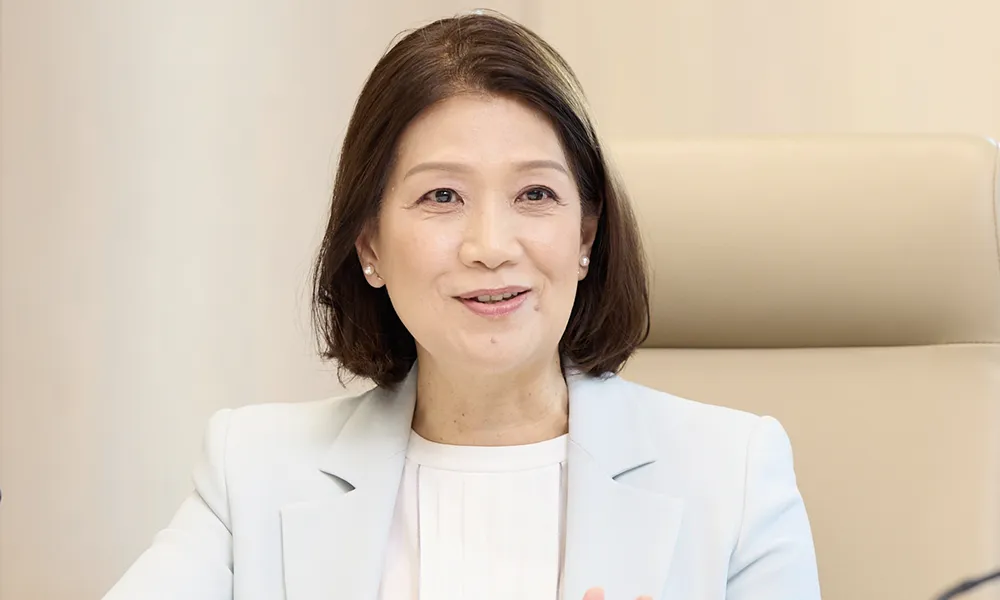
Asakura
-
In talking with you all, I realize that the Purpose, sustainability targets and one-team operations are still new to the Company, requiring more effort to ensure that they penetrate throughout the organization. Now that the Purpose has been set, it should be truly owned by every employee. I think this leads to higher corporate value and would like to discuss it more, including how it can best be accomplished.
Iwai
-
Thank you for your opinions from different viewpoints. I understand the importance of establishing the outcome of reform as standard practice. The capacity of the JT Group to offer social as well as financial value for the medium- and long-term depends on specific floor-level and individual initiatives. While executive officers take specific actions to embody the Purpose, it’s important for Board members to have regular discussions to better understand the spread of the Purpose across the organization and better promote that effort. I appreciate your continued support.

